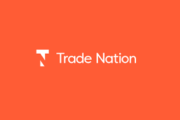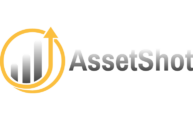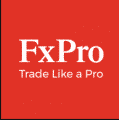If you are a South African citizen or resident thinking of starting your first journey into forex trading, South Africa has plenty of opportunities to offer. Here are our essential tips when choosing a forex broker to trade within South Africa.
Trading forex is legal in South Africa, and you will find a variety of brokers offering retail forex accounts and CFD trading. All forex brokers based in South Africa need to be regulated by the FSCA. Some international brokers, however, may be happy to accept clients from South Africa even though they are based overseas. Check the regulatory status of any broker before signing up










Risk Warning: Trading financial products on margin carries a high degree of risk and is not suitable for all investors. Losses can exceed the initial investment. Please ensure you fully understand the risks and take appropriate care to manage your risk.




CFDs are complex instruments and come with a high risk of losing money rapidly due to leverage. 71% of retail investor accounts lose money when trading CFDs with this provider. You should consider whether you understand how CFDs work and whether you can afford to take the high risk of losing your money.




Spread bets and CFDs are complex instruments and come with a high risk of losing money rapidly due to leverage. 78% of retail investor accounts lose money when trading spread bets and CFDs with this provider. You should consider whether you understand how spread bets and CFDs work, and whether you can afford to take the high risk of losing your money.








Spread bets and CFDs are complex instruments and come with a high risk of losing money rapidly due to leverage. UK: 68.61%, EU: 77.99% of retail investor accounts lose money when spread betting or trading CFDs with OvalX. You should consider whether you understand how spread bets or CFDs work and whether you can afford to take the high risk of losing your money.






























CFDs are complex instruments and come with a high risk of losing money rapidly due to leverage. 69% of retail investor accounts lose money when trading CFDs with this provider. You should consider whether you understand how CFDs work and whether you can afford to take the high risk of losing your money.









When researching forex brokers, South Africa has a wide range to choose from. Make sure that the broker is fully licensed and regulated, and that it provides a solid trading platform and responsive customer service. If you are a South African forex trader, you might want to look for a firm that is based in the country, or at least one that has an office in South Africa. In terms of the minimum amount to start trading, South African clients should check what deposit requirements are when depositing ZAR, if they wish to trade in their own currency.
South African forex brokers may work on a commission-free model, taking their profits only from the spreads, or they may charge a commission for each transaction. Check all the fees and costs involved before committing to a broker, including admin and inactivity fees, withdrawal charges, and other potential ‘hidden’ costs.
Forex brokers in South Africa have to be regulated by the FSCA, and this applies whether the broker is based in the country or simply operating there. If your broker is international, it may also be regulated by other entities in other jurisdictions, such as the FCA, ASIC or CySEC.
When it comes to forex trading platforms, South African forex brokers tend to offer a range of trading platforms such as MT4, MT5 or Trader, and mobile trading apps are also common. Many brokers will offer more than one type of platform, so consider using a forex trading demo account to check out the different platforms.
If you are resident in South Africa, choosing a local broker, or one that has a South African office, may help when it comes to customer service, especially if it has a local phone line you can call for support. Check to see if support is available in the language you feel most comfortable with.
Yes, individuals do have to pay tax on any profits from forex trading in South Africa. If you are a forex trader who is resident in South Africa, you will have to declare any income from forex trading on your annual tax return.
Getting started is easy. Simply find an appropriate broker that is regulated by the FSCA, and sign up for an account. Most forex brokers also have an education section that can help you learn the basics of forex trading.
Yes, forex trading is legal in South Africa. The FSCA regulates all forex trading, operating on behalf of both traders and brokers, to make sure that no illegal activities take place.